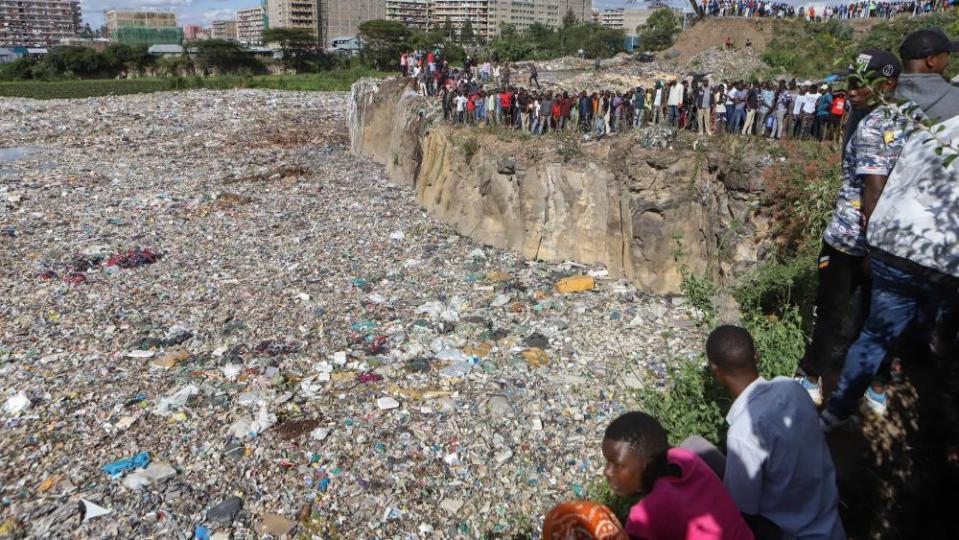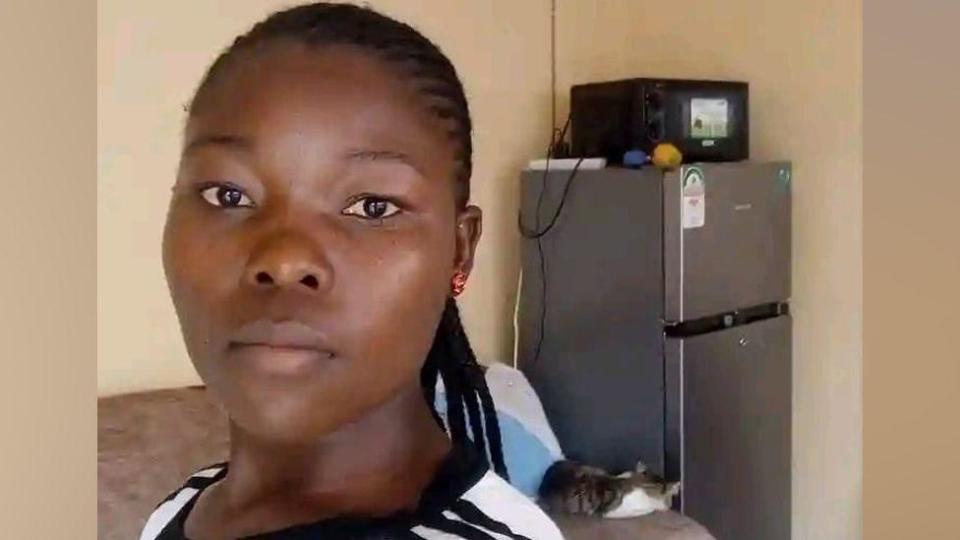The arrest of an alleged serial killer in Kenya has shocked the country – but many have serious doubts about the circumstances of his arrest.
Police say Collins Jumaisi Khalusha, 33, confessed to killing 42 women – although his lawyer told a court on Tuesday he was tortured into a confession.
It is the latest twist in a disconcerting story that followed the recent discovery of the dismembered remains of nine bodies wrapped in plastic in an abandoned quarry, which is used as a rubbish landfill and is close to a police station in the capital, Nairobi.
1) How did the bodies end up meters from a police station?
Many people have difficulty understanding that the police were unable to detect that bodies were being left about 100 meters from one of their offices in the informal settlement of Mukuru Kwa Njenga.
Residents criticized police officers for their “laxity and unprofessionalism” in dealing with crime.
In response, acting police chief Douglas Kanja announced on Sunday that officers at the nearby Kware police station had been transferred.
It is unclear whether they were asked how the deaths went unnoticed.
But given the force’s poor human rights record, the police watchdog said it was carrying out a preliminary investigation to establish whether there were any police links.

What’s even more baffling is how a member of the public discovered them.
The family of missing Josephine Owino says she came to one of them “in a dream” and helped point them in the right direction.
Diana Keya, Owino’s cousin, told Citizen TV that the family paid some young men near the landfill to sift through the rubble.
This is how nine seriously mutilated bodies were found on Friday. They were wrapped in nylon bags tied with rope.
The first statement from the police said that the “alarm was raised” by the public.
When questioned later, the head of the Criminal Investigations Directorate, Mohamed Amin, said: “We are not dreamers and we do not believe in dreams.”
2) How long were the bodies left?
Police said the recovered bodies were at different stages of decomposition, suggesting the victims were killed at different times.
In the now-disputed confession, police say Khalusha allegedly admitted to murdering the women over a two-year period.
What’s not clear, however, is whether the remains were dumped then or more recently.
Hussein Khalid, executive director of human rights group Haki Africa, told the BBC that the police version of events had “many holes”.
3) How did the police make the arrest so quickly?
After apparently suspecting nothing for two years, police made an arrest less than three days after discovering the bodies.
On Monday, police said Khalusha was detained in a bar in the early hours of that morning while watching the Euro final football match.
They showed the media some of the items that were reportedly recovered from the suspect’s home – also close to where the bodies were found – including 10 phones, a laptop, identification cards and women’s personal clothing.
Police said they tracked Khalusha’s whereabouts after geolocating the cell phone of one of his alleged victims.
Mr Khalusha’s lawyer questioned the validity of the evidence.
4) Who are the victims?
Only one body has been identified so far – that of 24-year-old Roseline Ongogo.
Her brother, Emmanuel Ongogo, told the BBC that she disappeared on June 28 after leaving home in search of casual work.
He said the family went to the mortuary when they heard that bodies had been recovered in Mukuru.
They identified her as wearing the same clothes she wore when she disappeared and with the same hairstyle.


Police also allege that Mr Khalusha’s wife was his first victim and claim that his identity card was found among the belongings of other alleged victims.
Owino’s family, who said they had dreamed about her whereabouts, told the BBC they were still awaiting identification.
5) What do the police say about women’s safety in Kenya?
The discovery brought back memories of the brutal murder of 20-year-old Rita Waeni in January.
His dismembered body was found in a rented apartment in Nairobi. The case has not yet been resolved.
The death triggered demonstrations across the country against the increase in cases of feminicide and other forms of violence against women.
Amnesty International said more than 500 cases of femicide have been recorded in Kenya between 2016 and 2023.
All the bodies recovered from the landfill are women.
A handful of elected women leaders who converged on the morgue called on the government to speed up investigations and put an end to such violence.
When asked what the police were doing to deal with cases of femicide and violence against women, spokeswoman Resila Onyango said she could not address that issue specifically – but told the BBC that the police’s job was to “protect the lives and everyone’s property.” .
This police scrutiny comes as more Kenyan officers arrive in Haiti, where they are leading a international mission to confront the country’s powerful gangs.
Pressure groups in Port-au-Prince have already questioned the agents’ credibility due to allegations of brutality and extrajudicial killings, which the Kenyan government has always denied.
More Kenya stories from the BBC:


Go to BBCAfrica.com for more news from the African continent.
Follow us on Twitter @BBCAfricaon Facebook at BBC Africa or on Instagram at bbcafrica



































